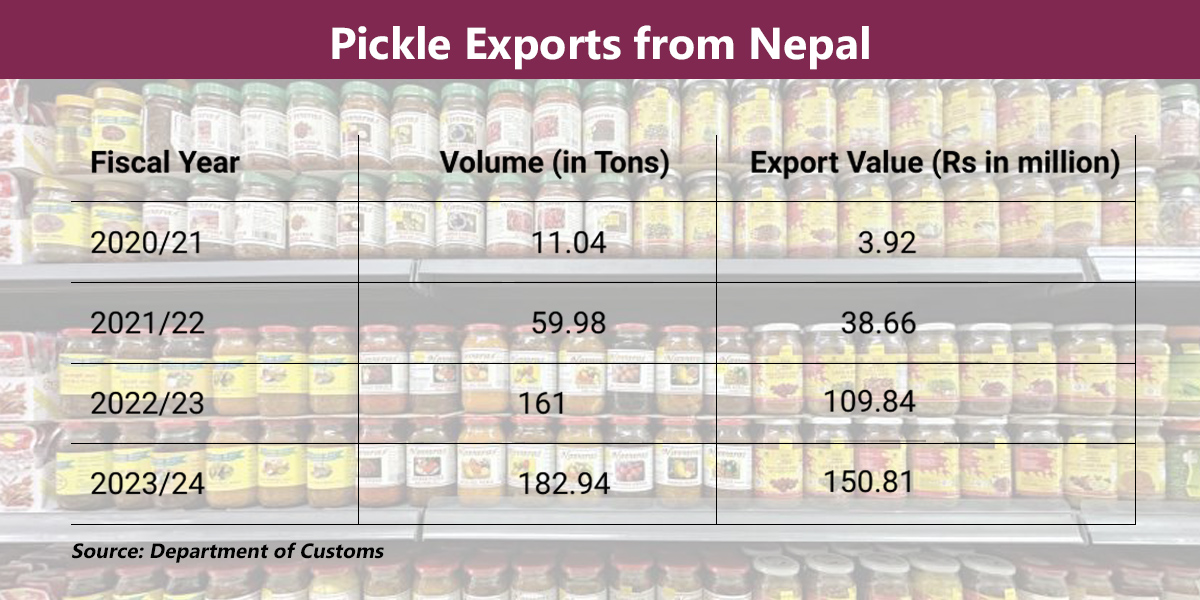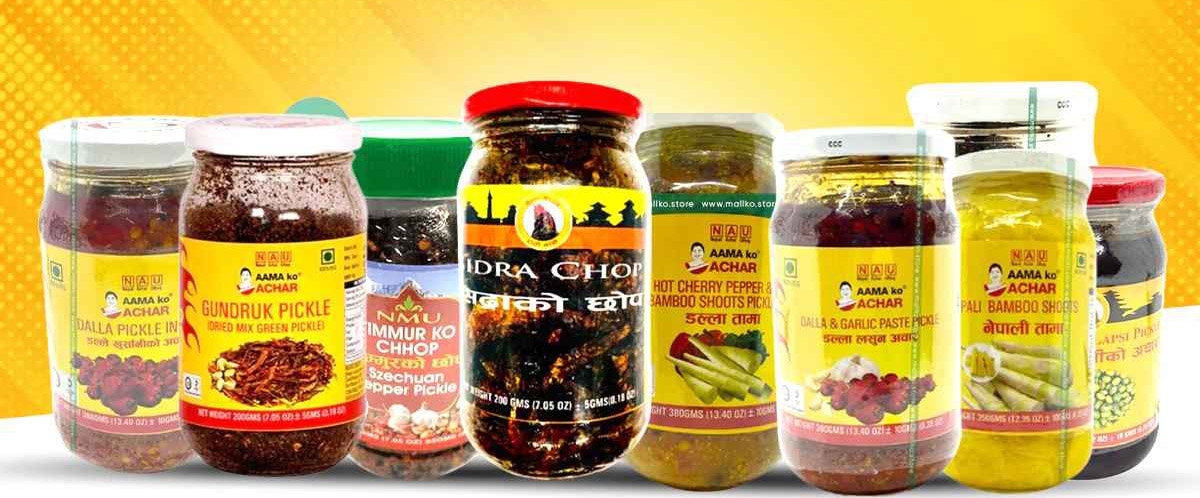
KATHMANDU: A culinary tradition is transforming into a growing export industry for Nepal. Pickles, known locally as ‘achar’, are making their way from humble kitchens to global stores. These condiments are not only carrying with them the flavors of Nepal but are also earning valuable foreign currency for the country and providing local people with a new source of income generation.
The art of making pickles is believed to have been born from the need to preserve seasonal fruits and vegetables for year-round consumption. Today, this time-honored practice is not only keeping traditions alive but also opening new avenues for economic empowerment, particularly for women.
Data from the Department of Customs (DoC) shows Nepal exported 47.74 tons of pickles worth Rs 42.79 million over the first two months of fiscal year 2024/25 – a whopping 157.74% growth compared to the same period of 2023/24 when the country exported significant growth compared to 18.52 tons valued at Rs 16.8 billion.
In fiscal year 2023/24, Nepal exported 182.94 tons of pickles worth Rs 150.81 million.
The global appeal of Nepali pickles is evident in the diverse list of importing countries. Australia leads the pack, accounting for nearly half of the total pickle exports in 2023/24. Other significant markets include Italy, the United States, Japan, South Korea, Belgium, and the United Kingdom. This widespread demand is largely driven by the growing Nepali diaspora, who seek a taste of home in their adopted countries.
The DoC first recorded pickle trade data in 2019/20. Since then, the numbers, both in terms of volume and value, have been impressive. Pickle exports, which were worth mere Rs 3.92 million with volume of just 11.04 tons in 2020/21, grew five-fold in just two years.
Desana, Kitchen Recipe, Achar Freak, Amako Achar, Ghar Ko Achar and Anjana Ko Achar are some of the leading pickle producers in Nepal. These companies prepare pickles from a wide variety of vegetables and spices as well as meat.


 Himal Press
Himal Press 











